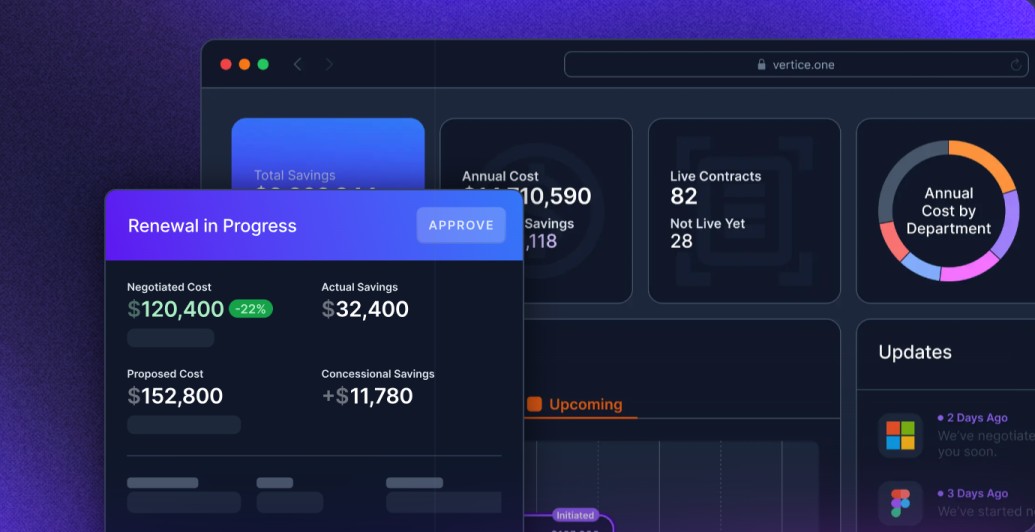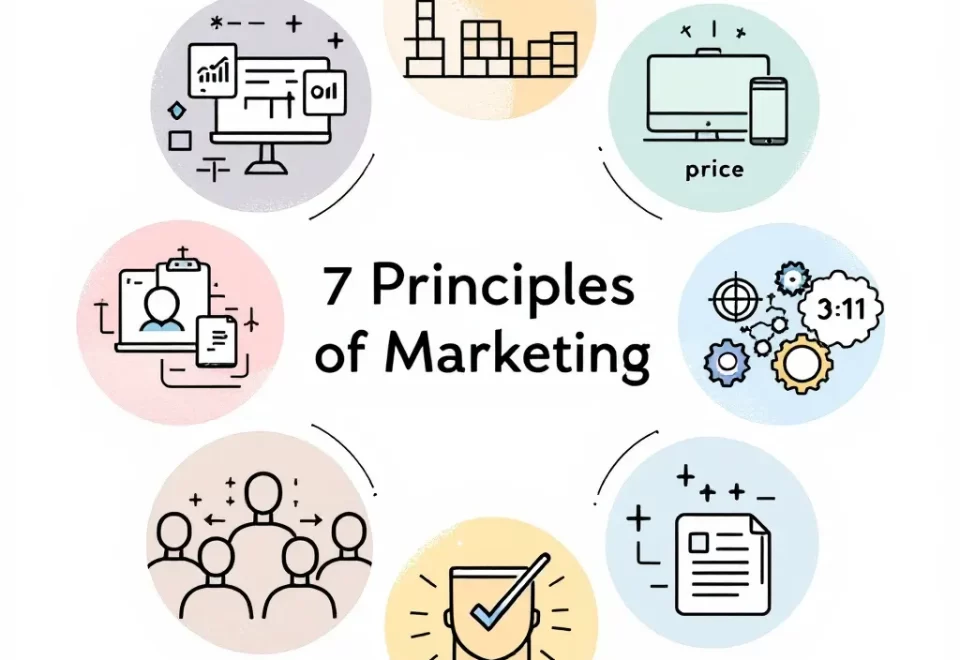Many of us have hopes and dreams, right? For some, that dream is to start a business. While many people dream of doing it, only a small percentage take the leap and make it a reality.
However, in recent years, the amount of new businesses created has rocketed. No doubt this figure has risen due to the events of the pandemic. With many people stuck in jobs that no longer inspired or moved them in the same way they used to, the pandemic became the perfect landscape to start afresh.
So where do you start when creating your own business? From brainstorming ideas to formulating a business plan, this comprehensive dummies guide will tell you everything you need to know.
While many people dream of owning a business and calling it their own, you need the knowledge and know-how to turn that dream into a reality. With this guide, you’ll give yourself every opportunity for success when starting a business.
Table of contents
- The benefits of starting your own business
- Laying the foundations for your business venture
- Six steps for starting a successful business
- Start with market research and stand out from your competition
- Craft a business plan and come up with a name
- Legitimizing the business
- Finance your business
- Create and deploy a marketing and brand strategy
- Hit the launch button
- The importance of flexibility and adapting
- A helpful timeline for your first year of business existence
The Benefits of Starting Your Own Business
Why start a business in the first place? Isn’t it just a headache and a world of stress? Of course, it is. However, success isn’t easily gained. The saying ‘Nothing worth having comes easy’ rings true. The best experiences and moments in life are often found by living outside of your comfort zone.
That’s why many individuals who dream of owning a business never do it. They’re too afraid of stepping into that zone that feels uncomfortable. However, for all of the stress and headaches caused, there are some great benefits to starting your own business.
- Being your own boss
- Flexibility
- Ability to work on your passions
- Independence
- Potential for unlimited income
- Tax benefits
There are some obvious reasons why some people would prefer not to start a business. For example, being your own boss requires much motivation and accountability. You can’t slack on the job because the job is your livelihood and no one else will help to pick up the workload.
Flexibility is a great one both financially and in general day-to-day life. When you are able to work the hours you want to, you have the flexibility to adapt to any life stage or event. For some, the ability to earn an unlimited income is exciting and there are also tax benefits that come with owning a business that are worth factoring in.
Of course, there are downsides to owning a business – but such is life. You’ve got to take the rough with the smooth and owning a business is no different, no matter where in the world you are.
Laying the Foundations for Your Business Venture
When building a house, the foundations are integral to its stability. It helps keep the home standing, regardless of what’s thrown at it.
The same goes for starting a business. Before getting into the nitty gritty of business creation, you’ll want to know what’s needed first and foremost. Here’s a brief breakdown of what you’ll need to get started.
The idea
The idea is one of the most important parts of setting up a business. The idea is what you hedge all of your bets on. Pick a bad idea and the business falls at the first hurdle. Pick a good idea and it might last a year or so. The best ideas lead to a long and fruitful business venture.
Your business idea needs to hit a home run. That sort of idea is one that takes a lot of time in market research, an understanding of the market, as well as a good sprinkling of luck.
Once you have an idea that’s foolproof, you are able to move forward. Don’t be brash in moving ahead before you’ve got that golden ticket. Otherwise, all that hard work and effort would have been for nothing.
Finances
Unfortunately, finances are an important player in creating a business. While some businesses are started on a shoestring, you might need more money to continue its creation and growth. That’s where investment comes into the ring. Whether it’s a bank loan or money you’ve saved tirelessly, you want to know just how much you’ll need in order to find success.
Finances can be a problem. Some get loans and others lack enough capital to acquire one. To avoid being up against the wall before you’ve even started, seek finance options and acquire investors and stakeholders where possible.
Technology
Your tech stack is highly influential to your business success, especially as we live in a more digital-heavy world. Most of what we consume on a daily basis is online and therefore your business, if applicable to the internet, should be making use of tools and software.
Fortunately, new businesses have access to a lot of technology that some businesses could only dream of having some twenty or thirty years prior. Newer technology is being embraced too with machine-learning technology being highly sought after.
Branding
As mentioned above, the digital world plays a big role in many of the new businesses that are created. Getting noticed becomes more challenging when there’s so much noise from other competitors online, especially when they’re established on the market and you’re not.
Branding is something that needs to be implemented into your business plan and needs to remain consistent so that customers and clients recognize your brand quickly. For small businesses, this is easily outsourced while you focus on the bare bones of the business in its infancy.
A team
There’s no ‘I’ in ‘team’ but there might need to be if you’re starting this business on your own. Some businesses are able to solely exist with just one person but many will need the helpful hands of others.
While you might not have the finances available to hire internally, a team doesn’t just mean those who are on the payroll. Outsourcing proves effective for many businesses who need help but don’t have the want or means to hire for the role in-house.
Do you want to start your business or grow your existing one?
Contact Growth Hackers
Six Steps for Starting a Successful Business
If you’ve gotten this far, strap in. This is the time when you grab a quick snack and a cup of your favorite drink. Now that you have the foundations of your business, it’s time to put pen to paper, fingers to keyboards as you navigate those first exciting steps towards creating your business.
Let’s get into it and discuss the steps needed when starting a business from scratch.
1. Start with market research and stand out from your competition
If you’re going to be a dummy, then starting a business without market research is the way to get it emblazoned on your forehead for the world to see. In order to create a successful business, a lot of work and finance goes into it.
Imagine doing all of that work and investing all of your money into an idea where there’s no market for it. On the flip side, you could have a business idea that’s been done ten times over and you’re just one of however many that offer nothing different.
To ensure your business idea or ideas work, conduct market research. This is where you identify the desire for your product or service, on the market. Some products or services may be the first of its kind. Others might have been done before but not done effectively enough.
Data is an important part of market research, so start gathering it. Pay for focus groups, try surveys, and even ask your nearest and dearest for feedback.
Once you’ve gathered that feedback, you need to work out how you’re going to stand out from the competition. Chances are, your product or service is going to be similar to others already out there. It’s up to you how you make your product different and unique from the rest. That’s where a USP (unique selling point) is worth having.
2. Craft a business plan and come up with a name
Planning and preparation are two necessities when creating a business. While you might know what you need to do right now, you want to be one or two steps ahead of yourself where possible.
Where do you see your business in a year’s time? What’s the big five-year plan? A business plan helps outline what your business is and how it’ll work on the market. It also outlines your finances, as well as your objectives for the business.
Crafting this business plan is the next step in the process and one you’ll want to spend your time on. A standard business plan usually contains the following:
- Executive summary
- Company Overview
- Products and services
- Market analysis
- Competition
- Marketing and sales
- Operations
- Milestones and metrics
- Financial plan
This list isn’t exhaustive but it’s a good starting point when outlining the plan itself. A business plan forms part of your pitch. It is helpful when presenting to investors when asking for money and to stakeholders when explaining what’s happening with their money.
You’ll also need to choose a business name which is another hard step. While a business name is changeable, doing so risks losing brand awareness and often reputation from customers who loved your original business name.
Therefore, it’s good practice to chew over your business name. Let it sit with you for a while until you know it’s the right name for the business.
3. Legitimizing the business
Crossing all the t’s and dotting all the i’s is an important one when setting up the business. Legitimizing your business involves jumping through all the legal hoops necessary to get your business registered and put on the map – online and offline.
Depending on what country you reside in and what address your business will be registered to, will determine what forms you need to fill in and what taxes you need to pay.
In most countries businesses will need to register their business name with state and local governments. The cost to register a business will also vary, so it’s good to get all of these costs onto your budget spreadsheet.
You may want to look at getting legal aid in order to set up your business so that you know you’ve set everything up correctly.
Once you’ve registered your business, you will likely need to apply for various licenses depending on the nature of your company. There’s also business insurance that needs to be considered. While you might not need all business insurance available, there are some common insurances taken out. These include:
- General liability insurance
- Product liability insurance
- Professional liability insurance
- Commercial property insurance
- Home-based business insurance
The last one is perhaps more popular nowadays since many new businesses start from the home and in some cases, remain in the home environment for a long period of the company’s existence.
4. Finance your business
When funding a business, every business has its individual needs. How much finance you require for your business, will depend on a number of factors.
Firstly, are you going to fund your business with your own funds? If you do, there’s a risk you’ll lose that money but that risk could also pay off ten-fold.
Not everyone has savings, which is why venture capital is explored through investors. There are plenty of investors out there with deep pockets ready to invest in the next big thing. If you have a product or service that those investors are interested in, then that’s an ideal route to business success.
There are other options to explore for financing, whether that’s getting a small business loan, seeking out SBA investment programs, or relying on the support that comes with crowdfunding.
Acquiring finance for your business is often the most challenging and it’s not just the money needed to get the business off the ground. It’s the funds you need to maintain the business on a daily basis and to drive growth for future success.
5. Create and deploy a marketing and brand strategy
The fruits of your labor deserve to be recognized but unfortunately, shouting from the rooftops that you have the next big thing on the market won’t be enough.
Nowadays, businesses need marketing campaigns and brand strategies to find success. Without that focus and attention to detail on marketing and branding, your business ceases to exist.
Again, this step requires diligence in market research. You should be looking at what your competitors are doing and identifying what opportunities they might be missing as well as what marketing efforts are paying off.
You also need an extensive understanding of your audience, which means creating buyer personas. That way, your marketing campaigns hit targets with pinpoint accuracy every time. Alongside your marketing strategy, you need to create a brand that’s likable, has a glowing reputation, and is a brand that everyone wants to be a part of.
Hit all these markers and you’ll find the business sells itself. Of course, that doesn’t always happen straight away but if you’re strategizing your marketing and branding from day one, then your business has every chance at success.
6. Hit the launch button
Ok, what are you waiting for? You’ve got all of the steps above ticked off. Now is the time to hit the launch button on your business. If you stall for too long or make excuses about not being quite ready, your business will never see the light of day.
This step is pretty self-explanatory but it’s time to get your website live, start posting on social media, and make sales.
It’s time to turn your business idea into reality by applying our comprehensive dummies guide!
The Importance of Flexibility and Adapting
As a business, it’s important to know that the business market is very fluid and ever-changing. Since the birth of the internet, business has changed significantly and that’s why flexibility is an important quality to have.
If you’re not willing to change and adapt to what’s new, then you risk being cast aside and having a new or more accommodating business step into your place in line.
That flexibility and ability to adapt comes from your workforce. Employees who are willing to disrupt the market and make innovative changes are the type of people you want leading your business.
It’s essential that every part of your business, as a whole and as individuals, is flexible to the market. However dynamic those changes are, a willingness toward that change is crucial.
A Helpful Timeline for Your First Year of Business
The first year of a business is the most vulnerable point. It’s often the first twelve months that make or break a business, so knowing how to navigate this first year is crucial. To finalize this comprehensive dummies guide, here are a few helpful milestones to tick off in your first year of business.
- Create your website and brand socials
- Optimize your online presence
- Know your marketing and customers inside and out
- Keep track of finances
- Mitigate risks
- Build an engaged customer base
- Hire the right people to grow the company
- Always plan ahead
The first year of business is all about establishing yourself on the market. You’re new – and hopefully exciting. You’ll want to ensure your website and social platforms are all branded to create consistency across the business.
Optimizing your online presence will help to get noticed and appease the ever-changing algorithms generated by these platforms. A thorough understanding of your marketing campaigns as well as your customers is essential. Every project and campaign will come with its own life lessons and insight.
Keep track of your finances because the first year often leads to a slippery slope of overspending and poor cash flow. Mitigating risks, whether it’s the way you handle your finances or how you handle business disputes, will all influence how well the business performs.
Your customers are the bread and butter of your business, so you want to ensure that they’re getting the best service possible. Whatever product or service you provide, going above and beyond will always be the most effective method of customer service.
While hiring staff might not be possible in the first few months of launching the business, there might be a potential opportunity in the near future. Consider who you’ll need for the company to expand and grow. Hiring the right people will be the leverage to take it from one big success to another.
Starting a Business Takes Time So Be Patient
A business isn’t created and successful overnight. It’s going to take a lot of planning and preparation to even get the bare bones of the company up on its feet. Patience is key because cutting corners and rushing the process will likely lead it down the path of failure rather than success.
Create a timeline that works for you and remain flexible. From brainstorming the ideas to creating the draft of your business plan. Every step needs to be carefully thought out and crafted with concise detail. You’ll encounter many stumbling blocks and obstacles along the way but that will provide you with the lessons you need to ensure your business thrives.
So with this dummies guide in hand – or bookmarked – make this year the beginning of business success.,m
GrowthHackers is one of the most innovative growth hacking companies helping businesses from all over the world grow. There is no fluff with Growth Hackers. We help entrepreneurs and business owners implement our comprehensive dummies guide to kickstart their business journey successfully, increase their productivity, generate qualified leads, optimize their conversion rate, gather and analyze data analytics, acquire and retain users and increase sales. We go further than brand awareness and exposure. We make sure that the strategies we implement move the needle so your business grow, strive and succeed. If you too want your business to reach new heights, contact GrowthHackers today so we can discuss about your brand and create a custom growth plan for you. You’re just one click away to skyrocket your business.








